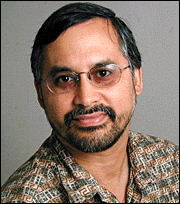

Raising Cane
Rob Perez
Cloud of secrecy
surrounds governor’s
tourism summitGov. Linda Lingle is scheduled to meet with legislative leaders and tourism executives Thursday to talk strategy about Hawaii's visitor industry.
That's not a bad idea -- Lingle and other politicians holding face-to-face meetings with tourism honchos to toss around ideas about the state's No. 1 industry.
But when Lingle and company gather at her office, they will do so behind closed doors. And don't bother showing up to try to get a seat inside.
Lingle is shutting the public out. We're not invited. We're not welcome.
Russell Pang, Lingle's spokesman, said the tourism summit will be closed to the public so the industry people in attendance can speak candidly.
If TV cameras and reporters are allowed in, the concern is that the executives may not be as willing to speak openly and honestly about issues important to them and important to Hawaii's visitor market.
But keeping reporters out means keeping the public out -- not a good thing on general principle, and especially not when talking about an industry that touches so many lives in Hawaii.
Pang said the summit will be the first of a series of meetings Lingle wants to hold to formulate a long-term tourism strategy. Along the way, he added, there will be many opportunities for the public to provide feedback.
Just not at this meeting.
What's amazing about the Republican governor's position is that the summit won't be dealing with sensitive trade secrets or closely held financial data or strategies for fighting a lawsuit or anything else that might warrant confidentiality.
Instead, the participants will discuss their vision for the industry, the challenges that lie ahead and other, similar topics -- not the kind of stuff that justifies shutting out the public.
"You have to have a very good reason to close the doors," said Jacqueline Parnell, board member of the Hawaii Pro-Democracy Initiative, an advocate for open government. "To say it's so they can talk more freely is not one of them."
There's no denying that the presence of reporters, cameras and bright TV lights can prompt some folks to clam up, to refrain from saying what's really on their mind or to even do some grandstanding.
"Some kinds of things are a little easier to talk about in private," agreed Murray Towill, president of the Hawaii Hotel Association, one of the organizations that will be represented at the summit.
Towill said he views the closed meeting as just one step in a multipronged process, and the summit simply is a way to start the process with frank discussions.
Similarly, House Speaker Calvin Say (D, Palolo) said he sees no problem with the meeting being behind closed doors.
The governor is interested in sharing her vision for Hawaii tourism with the summit participants and hearing theirs as well, according to Pang.
By keeping the meeting closed, he explained, "they can talk freely." What's more, reporters will be briefed afterward on what was discussed, Pang said.
But the spirit of open government and the interests of the public shouldn't be shortchanged simply to make summit participants feel more comfortable speaking up.
If they can't say publicly what's on their mind, maybe they shouldn't be there in the first place. These are, after all, supposed to be industry leaders, not entry-level help, and you typically don't make it to the top rungs of any industry by being timid of speech and lacking in self-confidence.
Besides, why create suspicion and controversy needlessly?
If Lingle wants to meet privately with business executives to foster some honest, candid dialogue, go right ahead. But don't call a summit and invite legislative and industry leaders and not the public, simply for the sake of practicality and convenience. Running an open, democratic government is not supposed to be convenient. It can even test the limits of practicality.
Unfortunately, the Lingle administration is showing itself to be a fan of closed meetings. The governor previously held a private session with Mayor Jeremy Harris and other government officials to discuss ways to improve public transportation on Oahu. Does Lingle not understand the word "public" in public transportation? We ultimately pay the tab, and in my book, that means we deserve to be at the table from the get-go, even if it's just to listen initially.
The administration's penchant for confidentiality apparently extends to the identity of people invited to Thursday's summit. I asked for but never received a list of the prospective participants.
Let me guess. Revealing their names would impede their ability to speak candidly?
I wonder what it is about the tourism industry that causes Lingle to lose sight of the public's interests.
Even her plan to tap the private sector to help pay for a Cabinet-level tourism czar is fraught with ethical peril and not in our best interests, as I've previously noted in this column.
Lingle should be applauded for giving tourism a top priority in her administration. It's the way she's doing it that raises red flags. In her zeal to boost the main driver of our economy, the governor is shafting the public.
She should get no applause for that.
Star-Bulletin columnist Rob Perez writes on issues
and events affecting Hawaii. Fax 529-4750, or write to
Honolulu Star-Bulletin, 500 Ala Moana Blvd., No. 7-210,
Honolulu 96813. He can also be reached
by e-mail at: rperez@starbulletin.com.